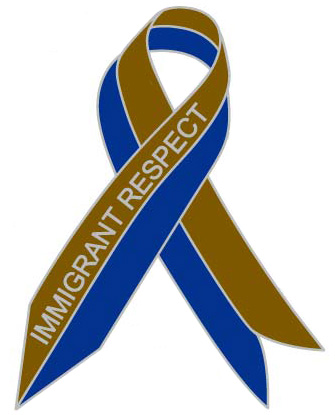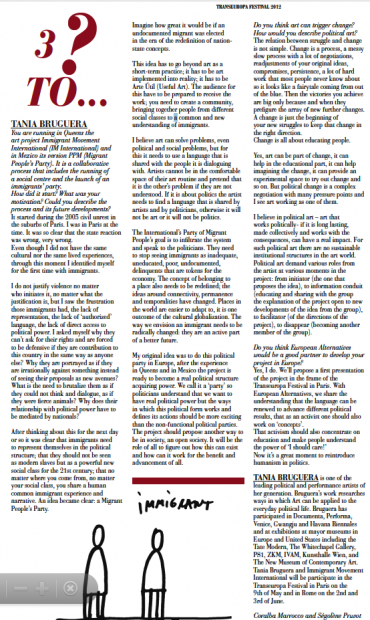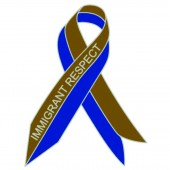Coralba Marrocco and Ségolène Pruvot
You are running in Queens the art project Immigrant Movement International (IM International) and in Mexico its version PPM (Migrant People’s Party). It is a collaborative process that includes the running of a social centre and the launch of an immigrants’ party. How did it start? What was your motivation? Could you describe the process and its future developments?
It started during the 2005 civil unrest in the suburbs of Paris. I was in Paris at the
time. It was so clear that the state reaction was wrong, very wrong. Even though I did not have the same cultural nor the same lived experiences, through this moment I identified myself for the first time with immigrants. I do not justify violence no matter who initiates it, no matter what the justification is, but I saw the frustration those immigrants had, the lack of representation, the lack of ‘authorized’ language, the lack of direct access to political power. I asked myself why they can’t ask for their rights and are forced to be defensive if they are contribution to this country in the same way as anyone else? Why they are portrayed as if they are irrationally against something instead of seeing their proposals as new avenues? What is the need to brutalize them as if they could not think and dialogue, as if they were fierce animals? Why does their relationship with political power have to be mediated by nationals? After thinking about this for the next day or so it was clear that immigrants need to represent themselves in the political structure; that they should not be seen as modern slaves but as a powerful new social class for the 21st century; that no matter where you come from, no matter your social class, you share a human common immigrant experience and narrative. An idea became clear: a Migrant People’s Party. Imagine how great it would be if an undocumented migrant was elected in the era of the redefinition of nationstate concepts. This idea has to go beyond art as a short-term practice; it has to be art implemented into reality; it has to be Arte Útil (Useful Art). The audience for this have to be prepared to receive the work; you need to create a community, bringing together people from different social classes to a common and new understanding of immigrants. I believe art can solve problems, even political and social problems, but for this it needs to use a language that is shared with the people it is dialoguing with. Artists cannot be in the comfortable space of their art routine and pretend that it is the other’s problem if they are not understood. If it is about politics the artist needs to find a language that is shared by artists and by politicians, otherwise it will not be art or it will not be politics. The International’s Party of Migrant People’s goal is to infiltrate the system and speak to the politicians. They need to stop seeing immigrants as inadequate, uneducated, poor, undocumented, delinquents that are tokens for the economy. The concept of belonging to a place also needs to be redefined; the ideas around connectivity, permanence and temporalities have changed. Places in the world are easier to adapt to, it is one outcome of the cultural globalization. The way we envision an immigrant needs to be radically changed: they are an active part of a better future. My original idea was to do this political party in Europe, after the experience in Queens and in Mexico the project is ready to become a real political structure acquiring power. We call it a ‘party’ so politicians understand that we want to have real political power but the ways in which this political form works and defines its actions should be more exciting than the non-functional political parties. The project should propose another way to be in society, an open society. It will be the role of all to figure out how this can exist and how can it work for the benefit and advancement of all.
Do you think art can trigger change? How would you describe political art?
The relation between struggle and change is not simple. Change is a process, a messy slow process with a lot of negotiations, readjustments of your original ideas, compromises, persistence, a lot of hard work that most people never know about so it looks like a fairytale coming from out of the blue. Then the victories you achieve are big only because and when they prefigure the array of new further changes. A change is just the beginning of your new struggles to keep that change in the right direction. Change is all about educating people. Yes, art can be part of change, it can help in the educational part, it can help imagining the change, it can provide an experimental space to try out change and so on. But political change is a complex negotiation with many pressure points and I see art working as one of them. I believe in political art – art that works politically- if it is long lasting, made collectively and works with the consequences, can have a real impact. For such political art there are no sustainable institutional structures in the art world. Political art demand various roles from the artist at various moments in the project: from initiator (the one that proposes the idea), to information conduit (educating and sharing with the group the explanation of the project open to new developments of the idea from the group), to facilitator (of the directions of the project), to disappear (becoming another member of the group).
Do you think European Alternatives would be a good partner to develop your project in Europe?
Yes, I do. We’ll propose a first presentation of the project in the frame of the Transeuropa Festival in Paris. With European Alternatives, we share the understanding that the language can be renewed to advance different political results, that as an activist one should also work on ‘concepts’. That activism should also concentrate on education and make people understand the power of ‘I should care!’ Now it’s a great moment to reintroduce humanism in politics.
Tania Bruguera is one of the leading political and performance artists of her generation. Bruguera’s work researches ways in which Art can be applied to the everyday political life. Bruguera has participated in Documenta, Performa, Venice, Gwangju and Havana Biennales and at exhibitions at mayor museums in Europe and United States including the Tate Modern, The Whitechapel Gallery, PS1, ZKM, IVAM, Kunsthalle Wien, and The New Museum of Contemporary Art.
Tania Bruguera and Immigrant Movement International will be participate in the Transeuropa Festival in Paris on the 9th of May and in Rome on the 2nd and 3rd of June.




